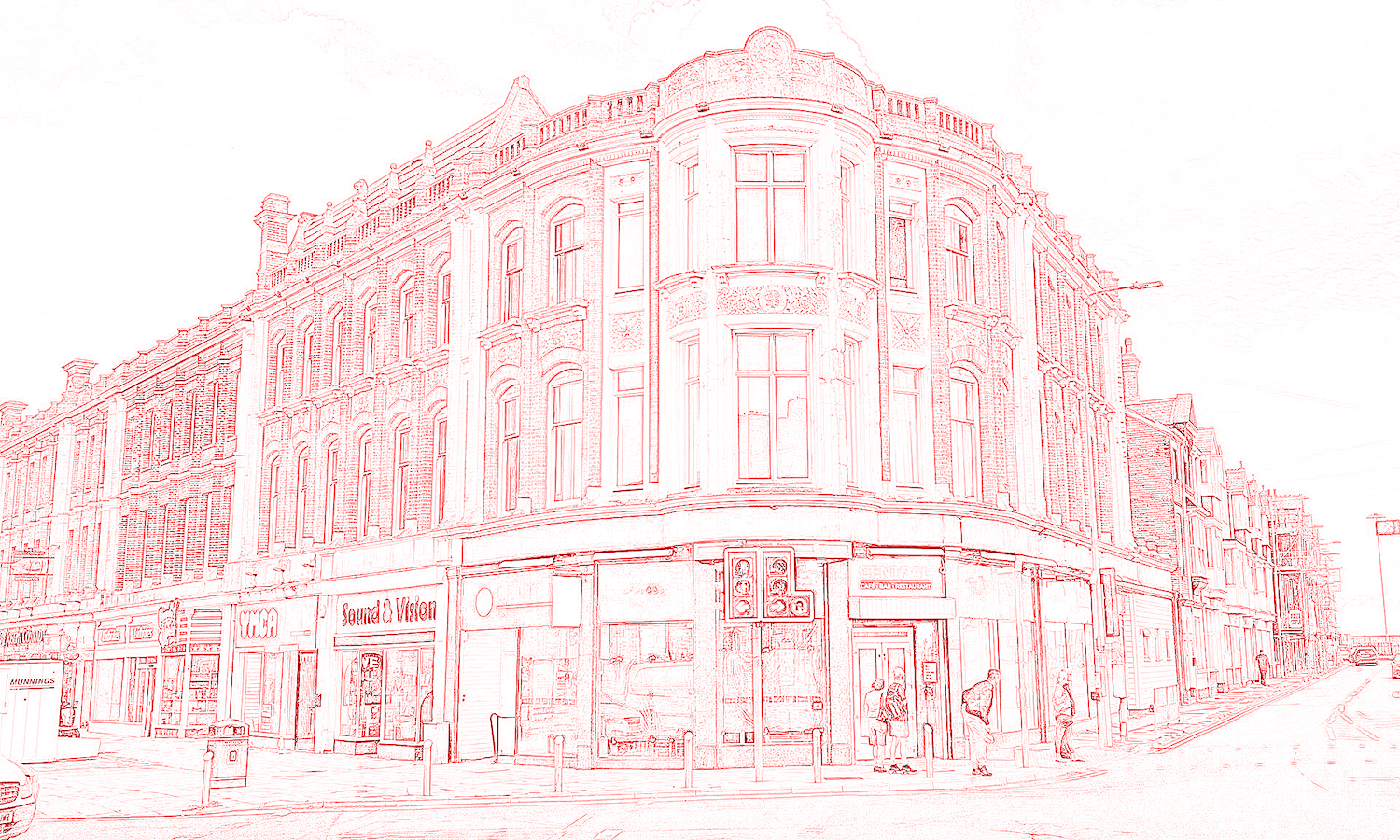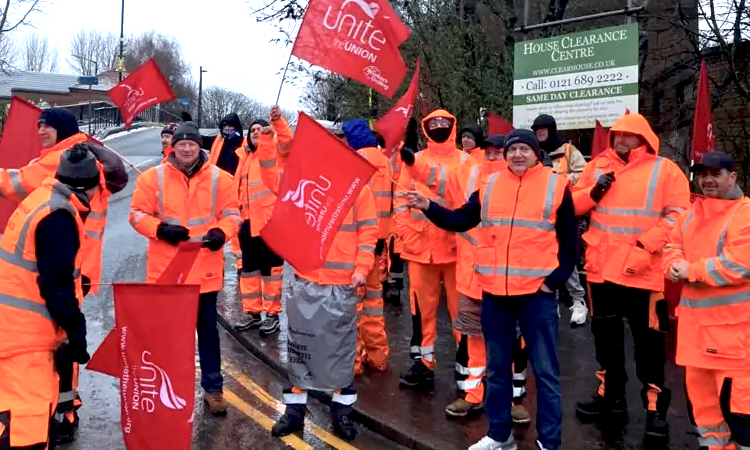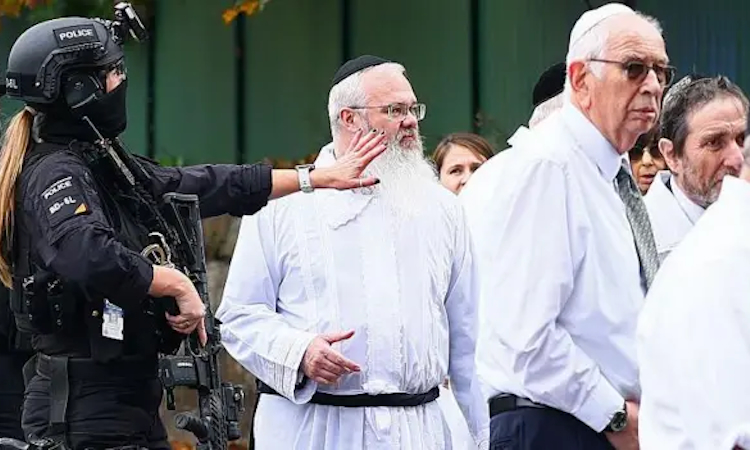The question of how we approach trade union work is an important one for any revolutionary organisation. Britain’s unions today are much diminished as compared with their high point in 1979, when they had 13 million members. Today, that figure has halved to 6.5 million members, most of them in fairly privileged jobs, but this still represents a large force of organised workers whom we should of course be trying to reach with our programme.
Our aim in this area of work as in all others is to bring workers towards a higher level of class-consciousness, as well as to find recruits for the party – that is, to find those union members who are ready and willing to be trained as Marxist worker-theoreticians.
It should be borne in mind with trade union work, as with communist work in any other part of the working-class movement, our ultimate aim is not to run trade unions but to develop deep and meaningful connections for the party of the proletariat amongst the advanced and organised workers, and to use this connection to popularise Marxist science – the liberation ideology of our class.
Limitations of union work
As British manufacturing has continued to be exported and replaced by service-sector, retail and warehousing jobs, and as public services have been increasingly privatised, huge areas of employment have sprung up that are essentially unrepresented by the established trade unions.
In some of these sectors, new unions are arising, and we must be as ready to interact with those as we are with the older established unions. In particular, whenever any of them are engaged in active struggle.
As VI Lenin pointed out in What is To Be Done?, while workers can learn a great deal about class struggle from trade union activities, the unions themselves are not revolutionary organisations. In fact, the focus of their struggle (protecting workers’ pay and conditions within the present economic order) inevitably leads them to foster reformist politics.
Lenin’s observation that revolutionary class-consciousness needs to be brought to the working class by a revolutionary party is as vital to recognise today as it ever was.
Britain is the oldest capitalist country in the world and the oldest imperialist power. It also has the world’s oldest trade union movement – one that predates the development of scientific socialism. When analysing the collapse of the rotten Second International during WW1, Lenin noted how the imperialist countries, with Britain foremost among them, had managed to incorporate the trade union and Labour leaderships into the political establishment.
More than a century later, this phenomenon has become ever more pronounced and obvious – as a quick tally of former union leaders now gracing the House of Lords’ red benches will reveal!
Essentially, the upper leaders and institutional machinery of the trade union movement have been incorporated into the British state machine.
With the occasional honourable exception, Britain’s unions today are not building a militant class struggle in defence of workers’ pay, conditions and rights, but channelling and managing workers’ anger in such a way as to stop it posing any real problem for the ruling class.
For form’s sake, fringe meetings at the TUC conference regularly discuss the repeal of the anti-trade union laws which hamstring the use of workers’ collective power, but, in truth, the TUC’s leaders have been delegated the task of enforcing those laws – and they have shown themselves only too willing to carry out this task.
The Labour link
Besides the plethora of legislation that makes lawful union struggle essentially ineffective, the single biggest factor in ensuring the compliance and docility of the unions is the relationship between the largest unions (Unison, Unite and GMB) and the Labour party. This relationship was forged by petty-bourgeois Fabian ‘socialists’ and labour-aristocratic union bureaucrats in the earliest days of Labour’s existence and has remained in force ever since.
The pressure exerted by this relationship is a very effective mechanism of state control over workers’ struggle. The Labour party has for a century been the reserve party of government, to be brought in when the Tories have become too despised to effectively carry out the ruling class’s business; it has thus become an essential part of the state machinery.
When an attack on the working class is needed that the Tories might not easily get away with, a Labour government is installed to get the job done.
Using its relationship with the trade union leadership, Labour can exert pressure on the working class, breaking up militant struggles and breaking down class solidarity to pit one group of workers against another with far less resistance than the Tories – acknowledged and open enemies of the working class – would face if they tried to do the same.
This is why Sir Keir Starmer has become the ruling class’s favoured candidate for prime minister in 2024. The monopoly financiers believe that Labour will be better able than Rishi Sunak’s Tory party to push down even harder on the workers and accelerate the war drive. They know that every attack on the working class at home and every crime committed abroad will be accompanied by a campaign of ‘don’t go letting the Tories back in’ blackmail from the trade union movement, which they expect will be effective in crushing nascent opposition and controlling workers’ anger.
The official self-identifying ‘left’ is totally complicit in this charade.
In many major unions, the structures are dominated by a thin and unrepresentative layer of (seemingly ‘ultrarevolutionary’ although in reality merely provocateur) Trotskyites, (allegedly ‘communist’) revisionists and Labour party functionaries (both ‘left’ and ‘right’). These groups all pretend a great loathing for one other in theory, but in practice they work hand in glove to maintain joint control over the unions and to ensure those organisations’ continued servility to the Labour party and its electoral interests.
The same groups perform the same service in the antiwar, Palestine solidarity and anti-austerity movements, where their role is not to organise effective opposition to imperialist aims but to police who is allowed to speak and what they are allowed to say; to make sure no meaningful activity is ever engaged on, and to keep workers’ anger within safe bounds.
A programme of meaningful action
In light of all the above, but recognising that communists must aim to be present wherever groups of workers are gathered – and must especially prioritise places where workers are gathering in active struggle – our party has drafted a number of model motions, which can be found in section five of our Manifesto for the Crisis: Class Against Class.
These are the arguments we want to put before the organised working class – arguments that the Labour-affiliated bureaucracies avoid like the plague. Together they present the broad brushstrokes of the kind of class-conscious approach and activity that ought to characterise trade unions that really aim to represent the interests of their working-class members in opposition to the constant assault of the capitalist class – an assault that is as much a part of the capitalist system as the system of wage labour (wage-slavery) itself.
These motions are briefly summarised below. We strongly recommended following the links and reading each one in detail. The demands they contain need to be raised at every opportunity, both within the trade union movement (in local branches, regions and national congresses) and in wider society (on demonstrations, in newspapers and leaflets and at public meetings).
We should aim to popularise them so that discussion of their contents and a demand for their implementation steadily grows amongst the working class, whether unionised or not.
Any one of our readers or members should be proposing one or more of these at their trade union branch, if they have one. Comrades who aren’t unionised at work should talk to their workmates about the demands we have made as the opportunities arise. It is also worth discussing the possibility of unionising your workplace with colleagues if there is no collective organisation currently in place.
1. The urgent need for a programme to address the cost of living crisis. The programme of measures we have proposed contains nine areas needing urgent attention, from guaranteeing cheap housing and energy to supplying decent food and renationalising the NHS, an end to inflationary money-printing and British involvement in imperialist wars.
We should be talking about why these demands are necessary, and why the unions and Labour party are doing nothing to help working people as the inflation crisis continues to worsen. It ought to be an easy matter for the trade unions, with all their resources, to campaign around these demands, which would be hugely popular and would certainly garner them many new members.
The building of a mass campaign and the real threat of mass action by the organised working class is what is needed to force the ruling class to retreat from its current strategy of increasing profitability through privatisation of public services and constant cuts to pay, pensions, social services etc, of using tax revenues to bail out monopoly corporations, and of waging wars for domination and plunder.
2. The need for the unions to defy the anti-union laws, refusing to comply en masse with state intervention in trade union activities and making Britain’s current anti-union legal framework simply unworkable in practice. While the need to reverse all the anti-union legislation enacted over the last 40 years is often talked about by some of the (self-described) ‘left’ trade union leaders, it is never seriously acted on. Yet while these laws remain in place, and while the unions defer to them as if they had no other option, almost every legally-conducted strike is doomed to failure.
We must break the superstition, inculcated into workers’ minds from a young age via state education and media, that the laws of the land are handed down by some neutral and benevolent authority (God) for the benefit of all, reminding workers instead that current legislation is simply a reflection of the balance of class forces. Anti-union laws were put on the statute books when unions were in retreat and the ruling class was on the attack.
Part of turning the tables on this state of affairs will require removing this legislation, by any means necessary. The growing number of so-called ‘wildcat’ strikes show that there is a real urgent need and growing demand for our trade unions to revert to tried-and-tested methods of working-class shop-floor democracy that results in immediate action (as opposed to waiting for months for a government-approved postal ballot), which all working-class history has shown to be the only really effective way for workers to harness their collective power.
3. The need for unions to break their links with the Labour party. As explained above, this tie keeps workers from taking independent action in their own interests, and is thus another huge obstacle to their waging militant and successful struggles. By raising this demand, and by proposing motions to break the link to our branches, we can highlight this central problem and force its discussion.
Disenchantment with Labour has never been as high as it is now, and we should aim to harness and direct the growing grass-roots anger, which is totally unreflected in the actions of today’s union leaders.
4. Connected to all the demands above is the question of the trade union bureaucracy. Bureaucratisation (ie, professionalisation and proceduralism) is one of the ways in which the ruling class brings the leadership of the trade unions into its orbit.
Senior union leaders are often employed on salaries that are many times above what their members earn, and they enjoy a whole range of privileges that they want to maintain. This leads even the better ‘left’-leaning leaders to fall easily into the role assigned to them by the capitalists. If they play ball with the state and the employers, if they police the working class on the ruling class’s behalf, then an easy life and a seat in the House of Lords await them.
We must therefore put forward a programme for the democratisation of the unions and aim to popularise this amongst the membership.
- All union officials who have any responsibility for representing workers and conducting negotiations with the employers must be elected (not hired by the union management). Union members must have the right to recall these officials if they are not representing their interests properly. As things stand, we have large numbers of full-time officials exercising great power over workers’ interests who are unelected and largely unaccountable to the membership. General secretaries and NEC members come and go, but many professional officials, often deeply reactionary, remain in a union’s employment for decades. Workers must have control over who is appointed to these positions and must have the ability to remove them as well.
- All union officials should receive the average wage of their members. Keeping union officials on high salaries is a deliberate strategy to create a separate and privileged layer at the top of working-class organisations. This coterie has consistently shown itself to be more interested in defending its own position than in fighting for the interests of trade union members – ie, of the working class.
Putting forward these demands, which enshrine the basic principles of working-class democracy, can help us to attract sincere, grass-roots trade unionists towards the party and to grow a movement aimed at a complete overhaul of the union movement – whether this is ultimately achieved by reforming the present organisations or by establishing new and really democratic ones.
5. The need for a mass campaign of non-cooperation with the imperialist war drive in general (and now also with the Gaza genocide specifically). Union leaders have long played a disgraceful role in supporting the wars waged by British imperialism. This can be very clearly seen in regard to Nato’s war on Russia, but it is also true of the war in the middle east. Unite’s Sharon Graham has openly defended arms exports to the Israeli regime and, for all the talk of “solidarity with Palestine”, nothing is done to organise the actual delivery of such solidarity.
We must agitate untiringly around this point, pushing the idea of non-cooperation with imperialist warmongering and genocide, and underlining the class-collaboration and zionist complicity of Labour and the TUC. At a time when so many workers are actively demanding meaningful action on Gaza, we are pushing at an open door when we make this demand, and our model motion on Palestine can be freely adapted to suit any workplace or industry.
Taking this programme forward
All these motions are only suggested texts, to give an idea to workers about how to approach these issues in their workplace organisations. Union members should feel free to take whatever is useful and adapt them to suit the needs of the current moment and the realities of their particular workplace and industry. It is the basic aims that are important and which need to be conveyed to workers, the detail of how this is done is bound to vary according to the conditions.
We can expect the union leaderships to do their best to stop such topics being properly discussed at their conferences. Our job is to popularise these demands anyway, since they represent the true interests of working people.
In pushing for these discussions to take place, we will also help to reveal the reactionary stance of the leaderships – a vital step in developing class-consciousness amongst the rank-and-file membership.
Every opportunity must be taken not only to bring these demands to the notice of organised workers but also to help them recognise what stands in the way of their being accepted and implemented.
Our work in trade unions is not aimed at capturing paid positions or taking over the bureaucratic machinery. We want to build a network of trade union members who are connected with the party and are thus willing and able to introduce a genuinely class-conscious, scientific analysis and programme of action to their fellow union members.
As in all areas of our work, we are doing what we can to connect Marxism, the liberation ideology of the working class, with the masses, in order that they may take this weapon and use it to achieve their social emancipation – that is, to put an end to their subjugation by the capitalist class; to put an end to the exploitation of man by man and nation by nation.
A first step towards this is that the demands contained in our programme are brought to the attention of workers. These discussions need to be had in every trade union and mass organisation of working people – in branch meetings and annual conferences, and anywhere else workers gather.
The more these demands are taken up by the working class, the harder it will be for the current state of affairs to continue, in which a few Labour-affiliated activists monopolise the positions, paid and unpaid, of every working-class organisation, determining their outlook and activity, and keeping them subservient to the Labour party – and through Labour to the British imperialist ruling class.
We may be few in number. We may be a lone voice in our union on many of these issues today, but our demands are in the real interests of working people and will gain traction if we are persistent and confident in promoting them, especially in conditions where the crisis and war drive are daily making working-class life more difficult and the only ‘answer’ on offer from official trade unionism is for workers to put their faith in a Labour government!
Suggested further reading
CPGB-ML: Manifesto for the Crisis: Class Against Class
Harpal Brar: Britain’s Perfidious Labour Party
VI Lenin: What is To Be Done?
VI Lenin: One Step Forward, Two Steps Back















